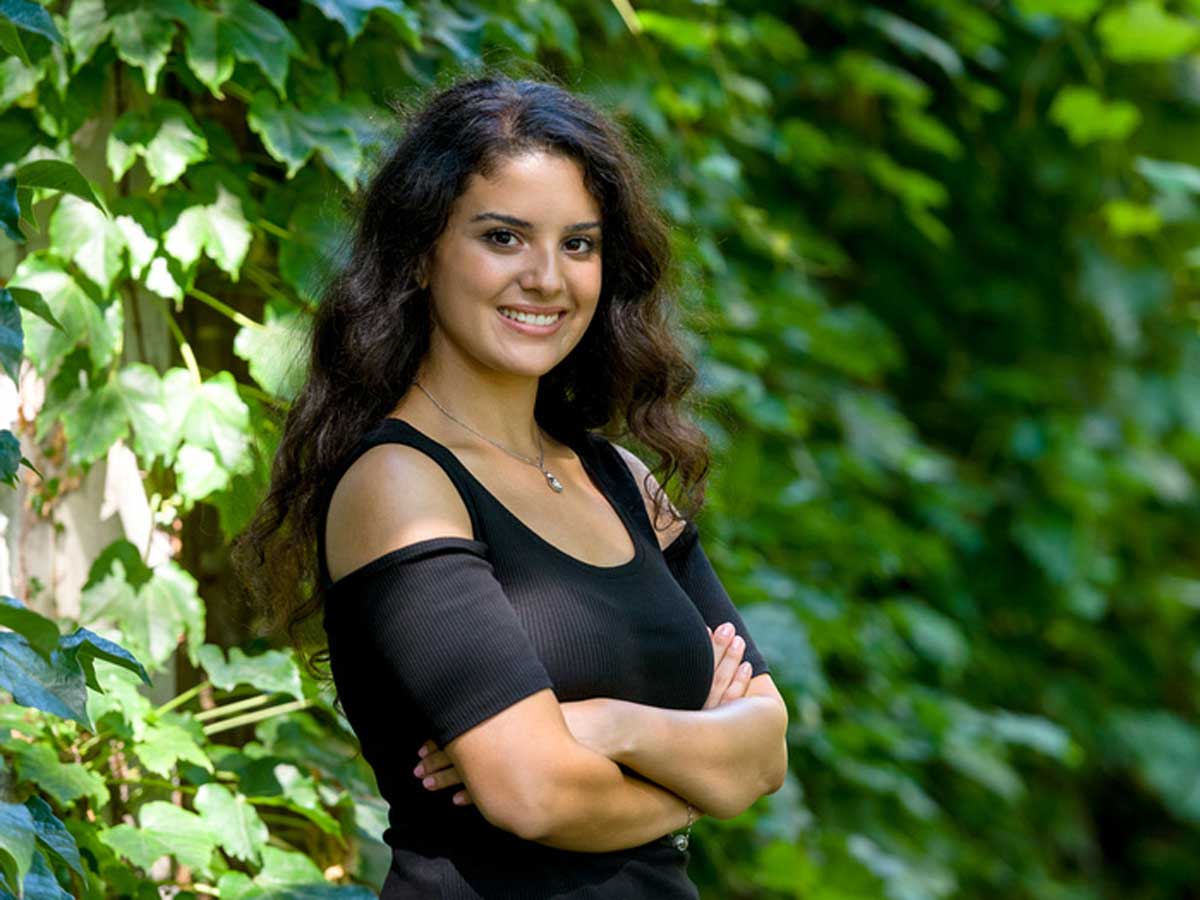From Syria to Toronto

Photo: Roua Alkadi is entering Ryerson’s biomedical engineering program with help from Jusoor Syria’s “100 Women, 10,000 Syrian Lives” scholarship. Photo by Clifton Li.
An investment in education is an investment in the future. When Roua Alkadi enrolled in Ryerson’s biomedical engineering program through Jusoor Syria’s Scholarship Program (external link, opens in new window) , she knew how her education could be used.
“Because I’m Syrian, I feel that if I got a biomedical engineering undergrad, and if I could go to refugee camps, I would know what they need and could help them,” said Alkadi. “Studying this, I can eventually help Syrian refugees around the world.”
Alkadi, 21, was already enrolled in accounting at the University of Damascus when she moved to Toronto in 2014. “The war started in 2011, and by 2014, I was fed up,” she said. “I couldn’t go to a university anymore, so if that’s the only reason I was in Damascus, what’s the use of staying there? But I was raised there, and it was hard to change.”
While her parents went to the United States, Alkadi and her sister came to Toronto to live with their older sister who had already made the move. Initially, the transition was difficult. “I knew nobody,” she remembered. “In Syria, I had friends, I had family in Syria, and my parents didn’t move with me—I only moved with my sister.”
In 2015, she began taking the adult learning courses (advanced functions and calculus) she needed to enroll as an undergraduate. “That’s when I started to really get to know Canada, because that’s when I started to really interact with people my age, and understand what I was going to study. I had a plan, and I was happy. Plus, people here are very nice. They accept you, and you don’t feel like you’re a foreigner—you feel like you belong.”
Launched in 2011, Jusoor Syria (external link, opens in new window) is an international NGO that seeks to help Syrian expatriate youths achieve their potential, and address challenges in their home country. “100 Syrian Women, 10,000 Syrian Lives (external link, opens in new window) ” is one of the organization’s several scholarship programs
“A lot of the humanitarian aid efforts focus on basic needs and very little on education,” said Maya Alkateb-Chami, director of Jusoor. “Aid for higher education is very marginal, and deserves more attention.”
Education is a key Syrian value: Alkateb-Chami noted that prior to the conflict, the country was highly educated, and with university subsidized by the government. “Syrian families and students value education a lot, to the degree of even moving away from Syria for their children to continue to attend school. These students who are eager to continue their studies are really no less than heroes. So many of them continue to work despite unfavourable circumstances, and we think they deserve every opportunity to flourish and succeed.”
In addition to helping individual students, Alkateb-Chami sees the scholarship as an investment in the future of Syria. “We are seeing the impacts already. Some students have founded or cofounded nonprofit organizations, or are serving in professional roles at international organizations that are helping Syria. Even when their professions are not related to international development or humanitarian work, we’re seeing that they’re getting their companies to do gift-matching for donations, or giving talks in their communities.”